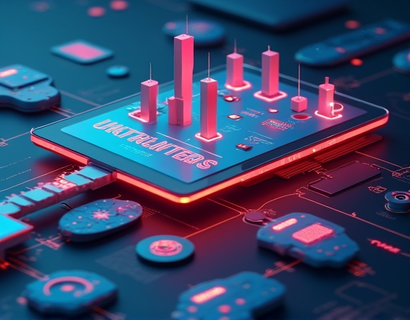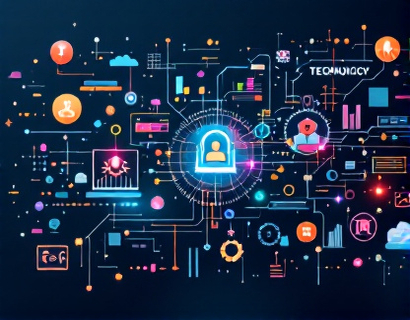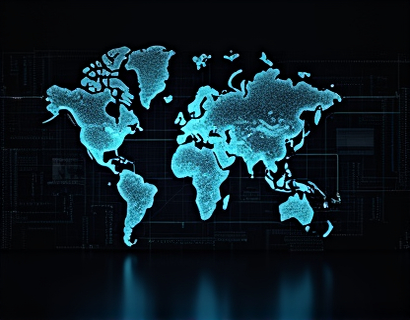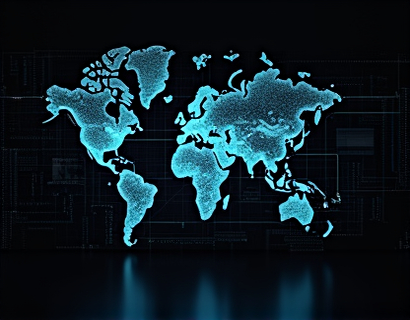Decentralized DAO Launch: Streamlining Autonomous Venture Creation with Advanced Tools and Resources
The emergence of Decentralized Autonomous Organizations (DAOs) represents a paradigm shift in the way businesses and ventures are created and managed. By leveraging blockchain technology and smart contracts, DAOs offer a novel approach to governance, ownership, and operation, enabling a more decentralized and transparent model. However, the process of launching and managing a DAO can be complex and daunting, involving numerous technical, legal, and strategic considerations. This article delves into how advanced platforms and tools are revolutionizing the creation and management of DAOs, providing a comprehensive toolkit for businesses to innovate and thrive in the decentralized landscape.
The need for streamlined DAO creation tools arises from the intricate nature of setting up a decentralized organization. Traditional venture creation involves a myriad of steps, from legal structuring and funding to governance setup and operational management. In the context of DAOs, these steps are compounded by the necessity of smart contract development, token economics design, and community engagement. An advanced platform can significantly simplify this process, offering a suite of integrated tools that address each phase of DAO creation and management.
Comprehensive Toolkit for DAO Creation
A robust platform for launching DAOs should encompass a wide range of functionalities, designed to guide users through every step of the process. The first critical component is a user-friendly interface that demystifies the technical aspects of DAO creation. This interface should guide users through a step-by-step wizard, ensuring that each component is correctly configured and integrated.
The platform should begin with a template-based approach, offering pre-built DAO structures that can be customized to fit specific needs. These templates can include different governance models, such as liquid democracy, proof of stake, or other consensus mechanisms. Users can select the most suitable template based on their venture's requirements, saving time and reducing the risk of errors.
Next, the platform must provide advanced smart contract development tools. These tools should enable users to write, test, and deploy smart contracts with ease. Integration with popular blockchain development environments like Truffle or Hardhat can facilitate this process. The platform should also offer a visual interface for smart contract creation, allowing non-technical users to participate effectively. This visual approach can include drag-and-drop components for defining contract logic, variable management, and event handling.
Token Economics and Distribution
One of the most critical aspects of DAO creation is the design and implementation of token economics. The platform should include a comprehensive tokenomics builder, allowing users to define token parameters such as total supply, distribution ratios, and utility. This builder should provide insights into the potential impact of different token distribution strategies on governance and incentive structures.
Automated token minting and distribution functions are essential to ensure that tokens are allocated correctly upon DAO formation. The platform should support various distribution scenarios, including initial coin offerings (ICOs), airdrops, and staking rewards. Additionally, it should offer tools for managing token vesting schedules and access controls, ensuring that tokens are distributed fairly and in accordance with the DAO's governance rules.
Governance and Decision-Making
Effective governance is the cornerstone of any DAO. The platform must provide robust governance tools that enable seamless decision-making processes. This includes a proposal and voting system that allows members to submit, discuss, and vote on proposals. The system should support different voting mechanisms, such as weighted voting based on token holdings or decentralized autonomous voting protocols.
Transparency is key in DAO governance, and the platform should ensure that all proposals, discussions, and voting results are publicly accessible. A blockchain-based log can be used to record all governance activities, providing an immutable and verifiable history. Notifications and alerts can keep members informed about upcoming proposals and important events, ensuring active participation.
Community Engagement and Onboarding
Building a strong community is vital for the success of a DAO. The platform should include features that facilitate community engagement and onboarding. A dedicated community portal can serve as a central hub for information, discussions, and resource sharing. This portal can host forums, chat channels, and documentation to help new members understand the DAO's purpose, structure, and participation mechanisms.
Onboarding guides and tutorials can help new members get started quickly. These guides can cover topics such as setting up a wallet, understanding the token economics, and participating in governance. Interactive elements like quizzes and gamified learning experiences can make the onboarding process more engaging and effective.
Operational Management and Monitoring
Once a DAO is launched, ongoing management and monitoring are crucial for its success. The platform should offer tools for tracking key performance indicators (KPIs), monitoring token flow, and assessing community activity. Dashboards can provide real-time insights into the DAO's financial health, governance participation, and overall performance.
Automated reporting features can generate regular updates on various metrics, helping administrators and members stay informed. These reports can include detailed analyses of proposal outcomes, voting trends, and community engagement levels. The platform should also support custom reporting templates, allowing users to focus on specific aspects of the DAO's operation.
Security and Compliance
Security and compliance are paramount in the decentralized space. The platform must incorporate best practices and tools to ensure the DAO's security and adherence to relevant regulations. This includes integrated security audits, vulnerability scanning, and best practice guidelines for smart contract development.
Compliance checks can help ensure that the DAO operates within legal frameworks, particularly in jurisdictions with strict regulations on digital assets and decentralized organizations. The platform can provide resources and templates for compliance documentation, helping users navigate the legal landscape effectively.
Integration with External Services
To enhance functionality and interoperability, the platform should support integration with external services and tools. This can include connections to decentralized finance (DeFi) protocols, social media platforms, and other blockchain-based services. API integrations can enable seamless data exchange and functionality extension, allowing DAOs to leverage a broader ecosystem of tools and services.
Support for multi-chain deployments can also be a valuable feature, enabling DAOs to operate across different blockchain networks. This flexibility can help users choose the most suitable blockchain for their specific use case, whether it's Ethereum, Binance Smart Chain, or another platform.
Case Studies and Success Stories
To illustrate the potential and benefits of using an advanced platform for DAO creation, it is helpful to examine real-world case studies and success stories. These examples can provide valuable insights into the practical applications and outcomes of leveraging such tools.
One notable example is a decentralized content creation platform that used the platform to launch a DAO for managing content moderation and revenue distribution. By utilizing the platform's governance tools, the DAO was able to implement a transparent and community-driven approach to content curation, resulting in higher member engagement and satisfaction.
Another case involves a decentralized finance project that employed the platform to create a DAO for token distribution and protocol upgrades. The advanced tokenomics builder and governance tools enabled the project to design a fair and efficient token distribution model, leading to strong community support and successful fundraising.
Future Trends and Innovations
The landscape of DAO creation and management is rapidly evolving, with ongoing innovations poised to further enhance the experience. One emerging trend is the integration of artificial intelligence (AI) and machine learning (ML) to optimize governance processes and predict community behavior. AI-driven analytics can provide insights into member preferences and potential governance challenges, enabling proactive decision-making.
Another area of innovation is the development of interoperable DAO frameworks that allow for seamless interaction between different DAOs and decentralized applications (dApps). This interoperability can foster a more connected and collaborative decentralized ecosystem, where resources and expertise can be shared more effectively.
Additionally, the rise of user-programmable money (UPM) protocols is opening new possibilities for token utility and governance. UPM allows users to define custom rules and logic for token usage, enabling more sophisticated and flexible governance models within DAOs.










































